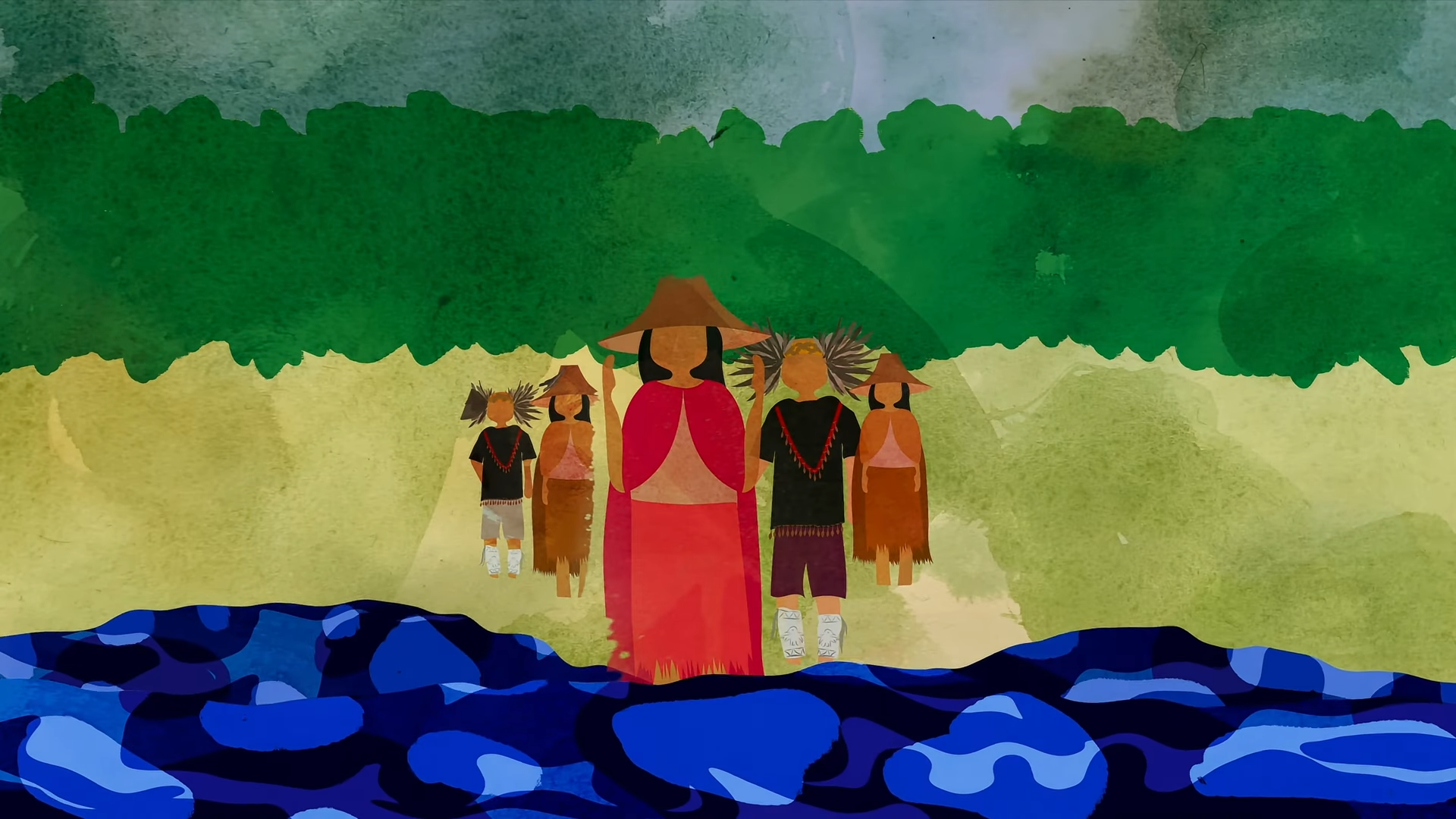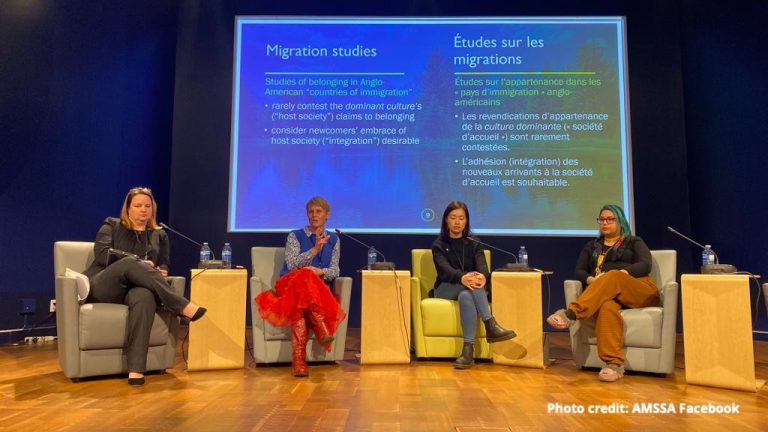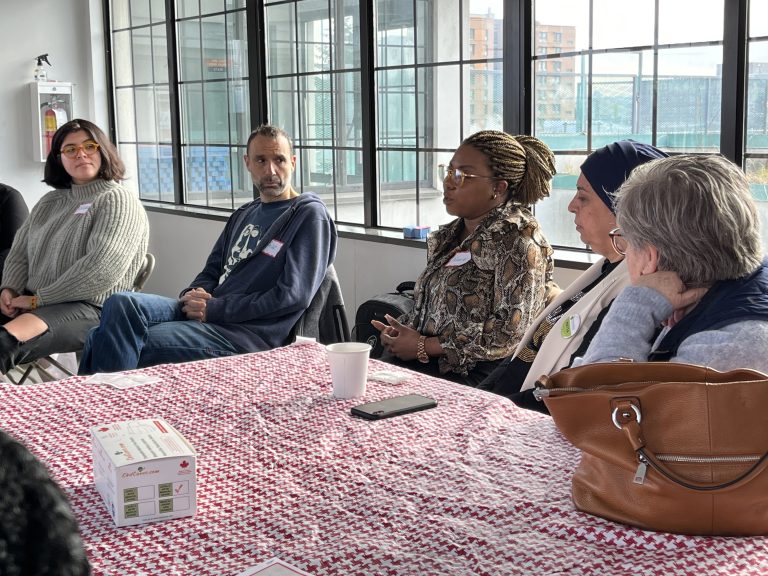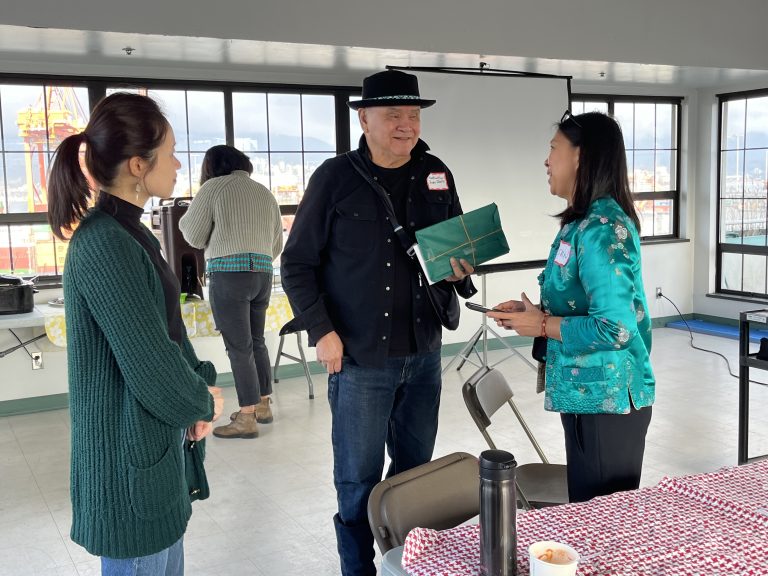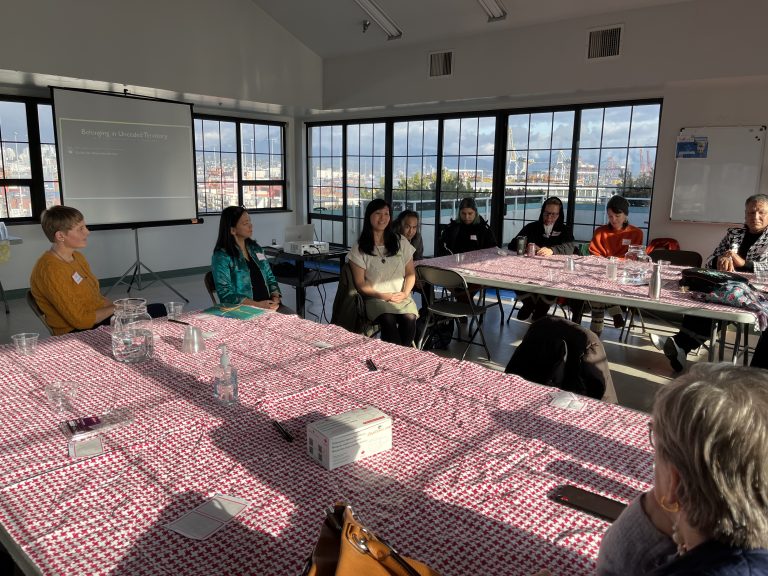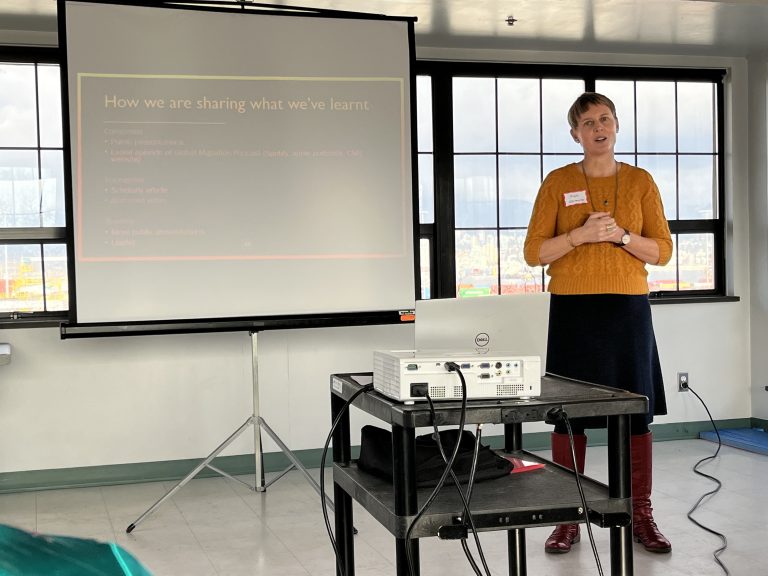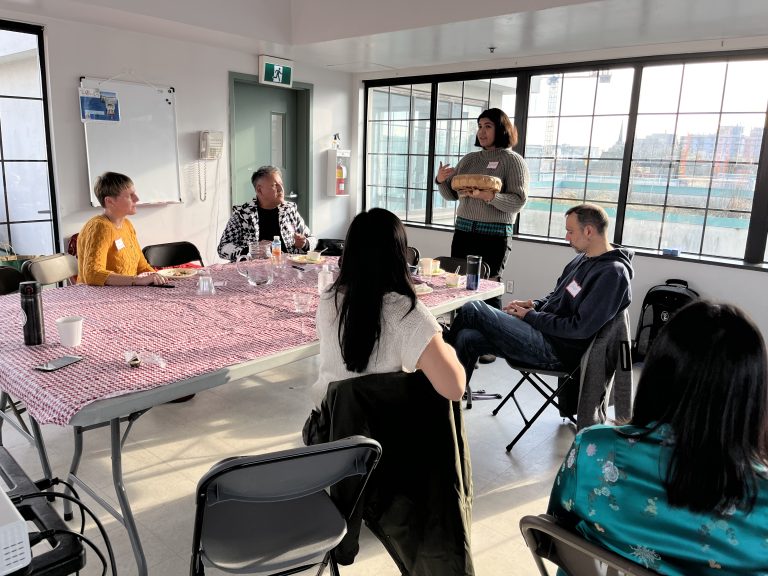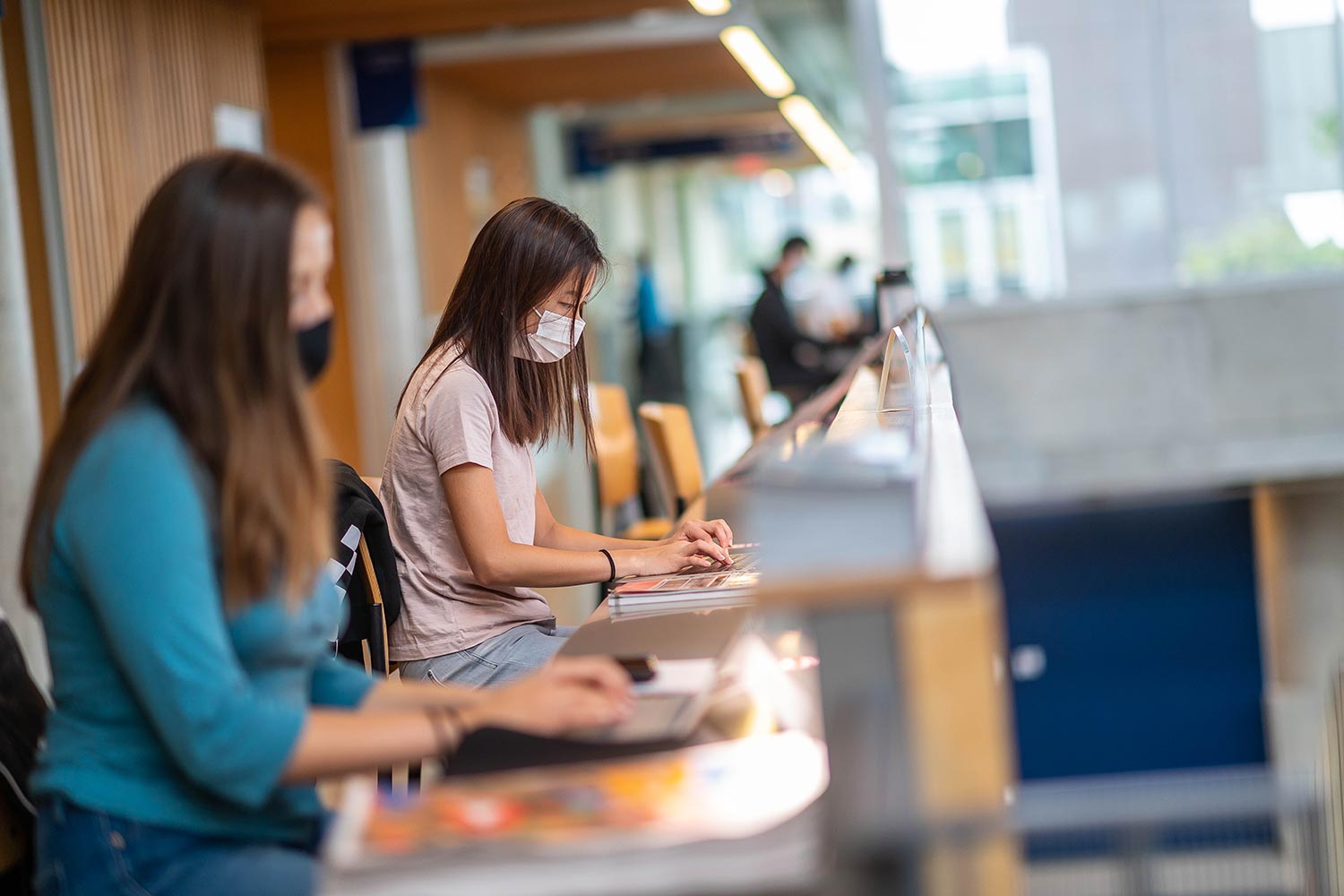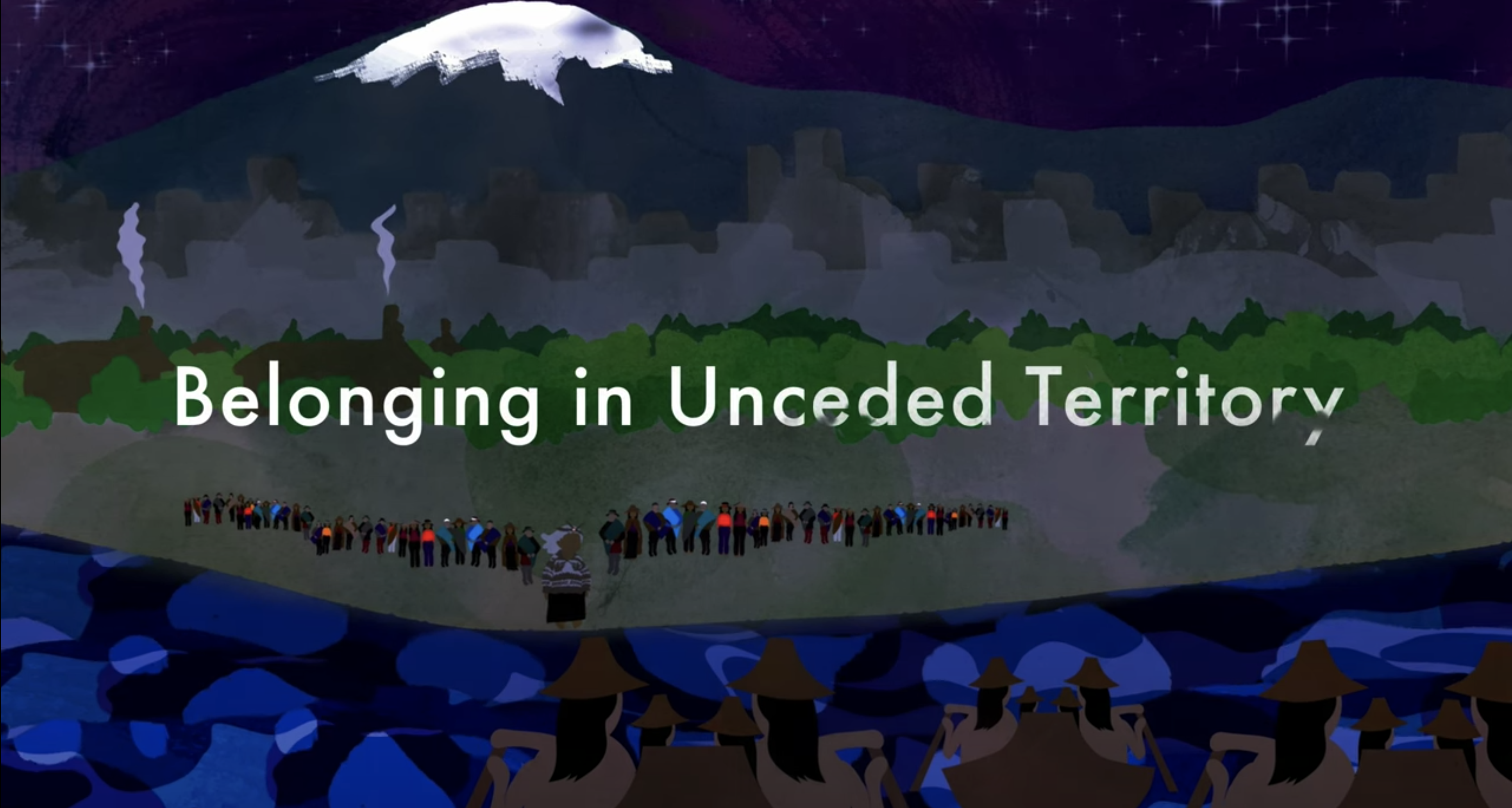
Stills from animated video, Belonging in Unceded Territory
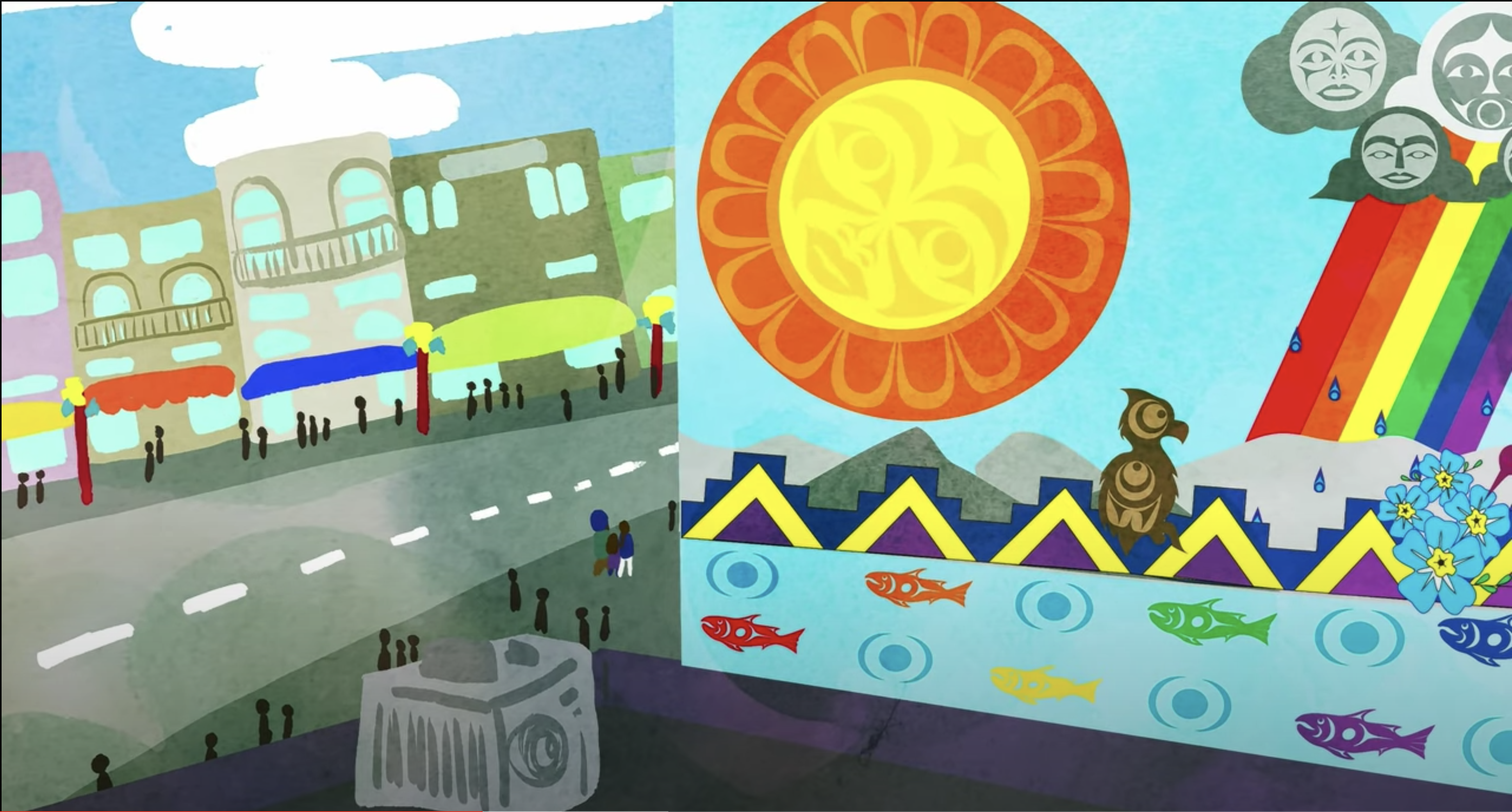
Stills from animated video, Belonging in Unceded Territory
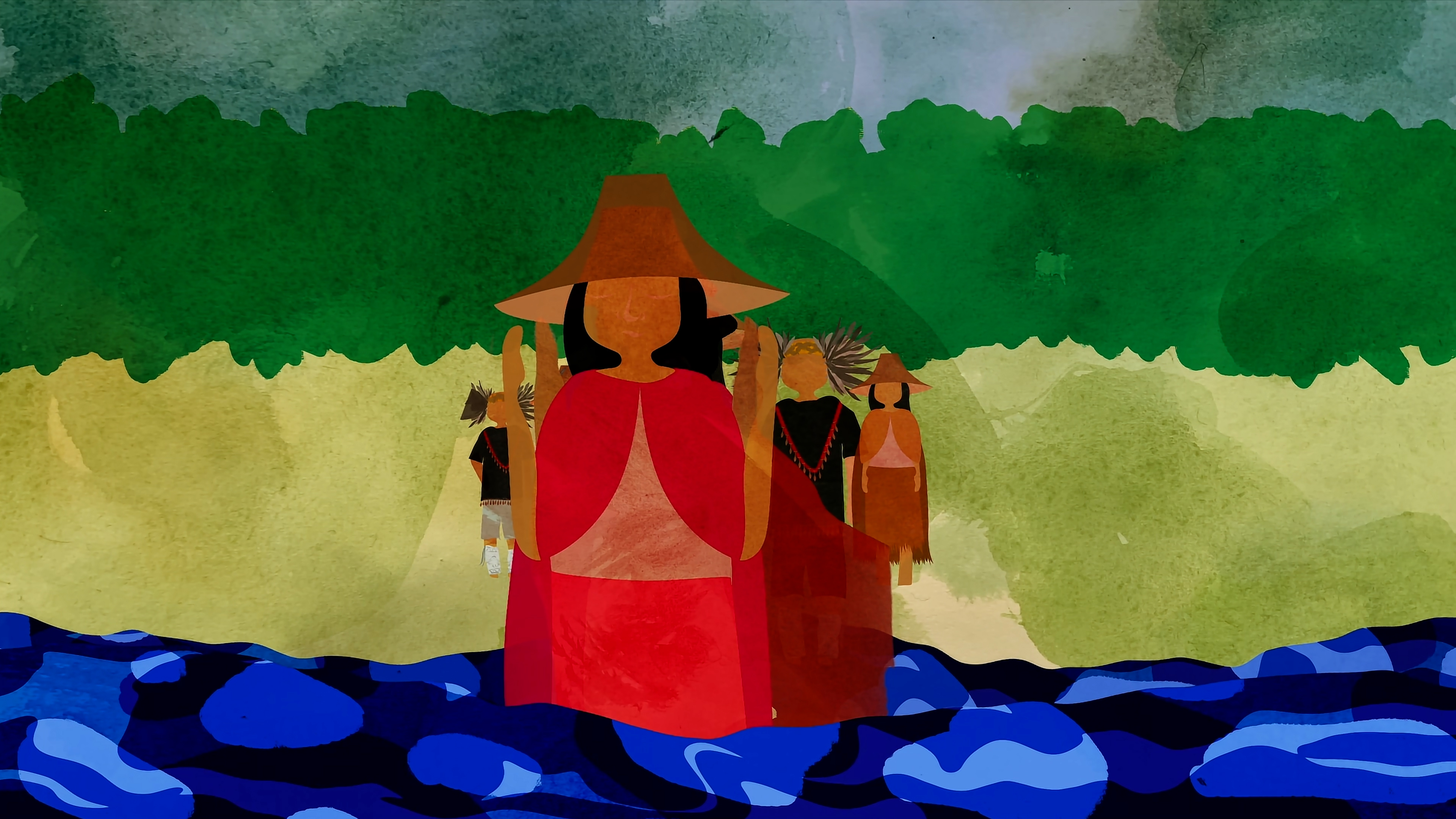
Stills from animated video, Belonging in Unceded Territory
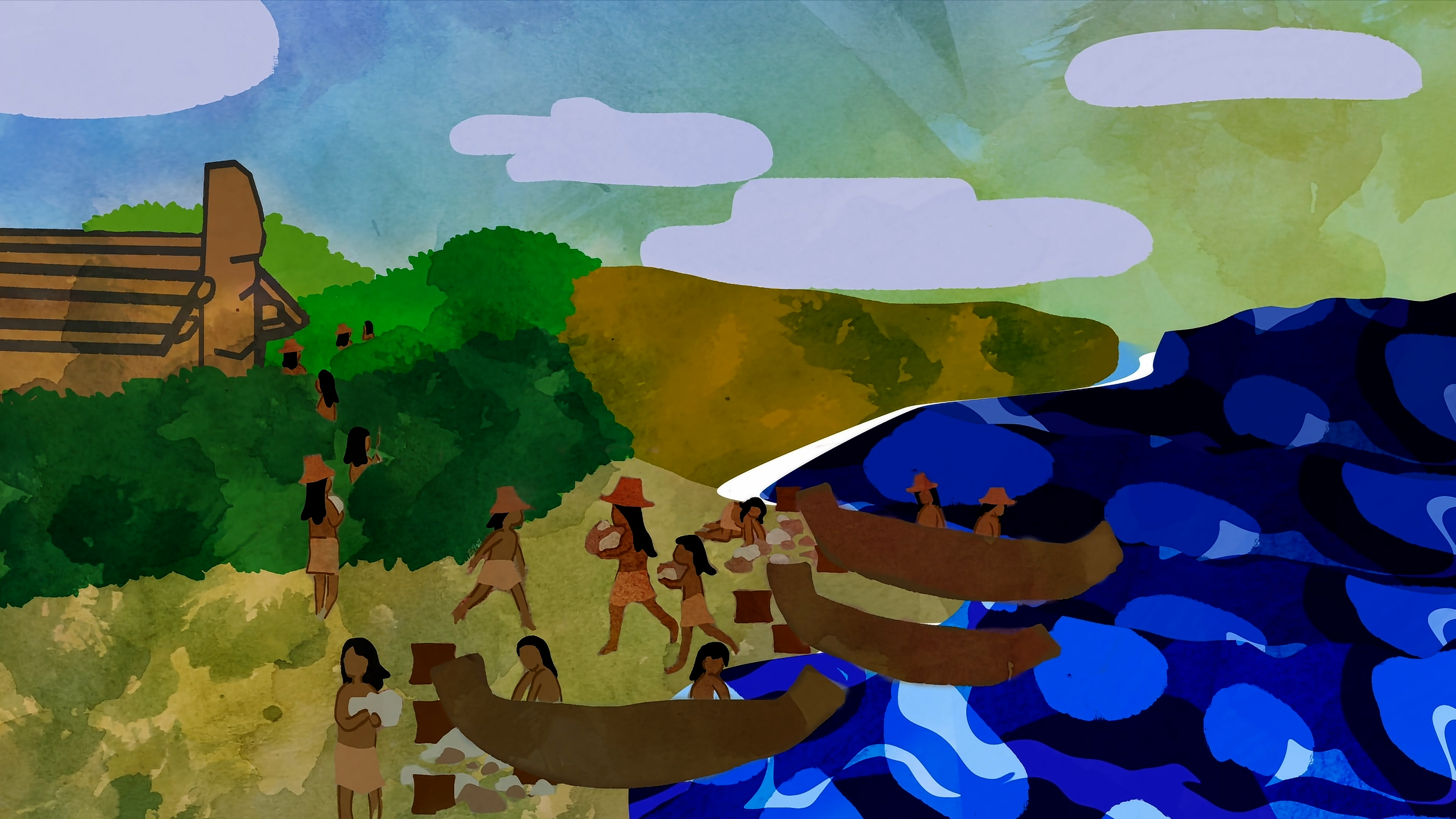
Stills from animated video, Belonging in Unceded Territory
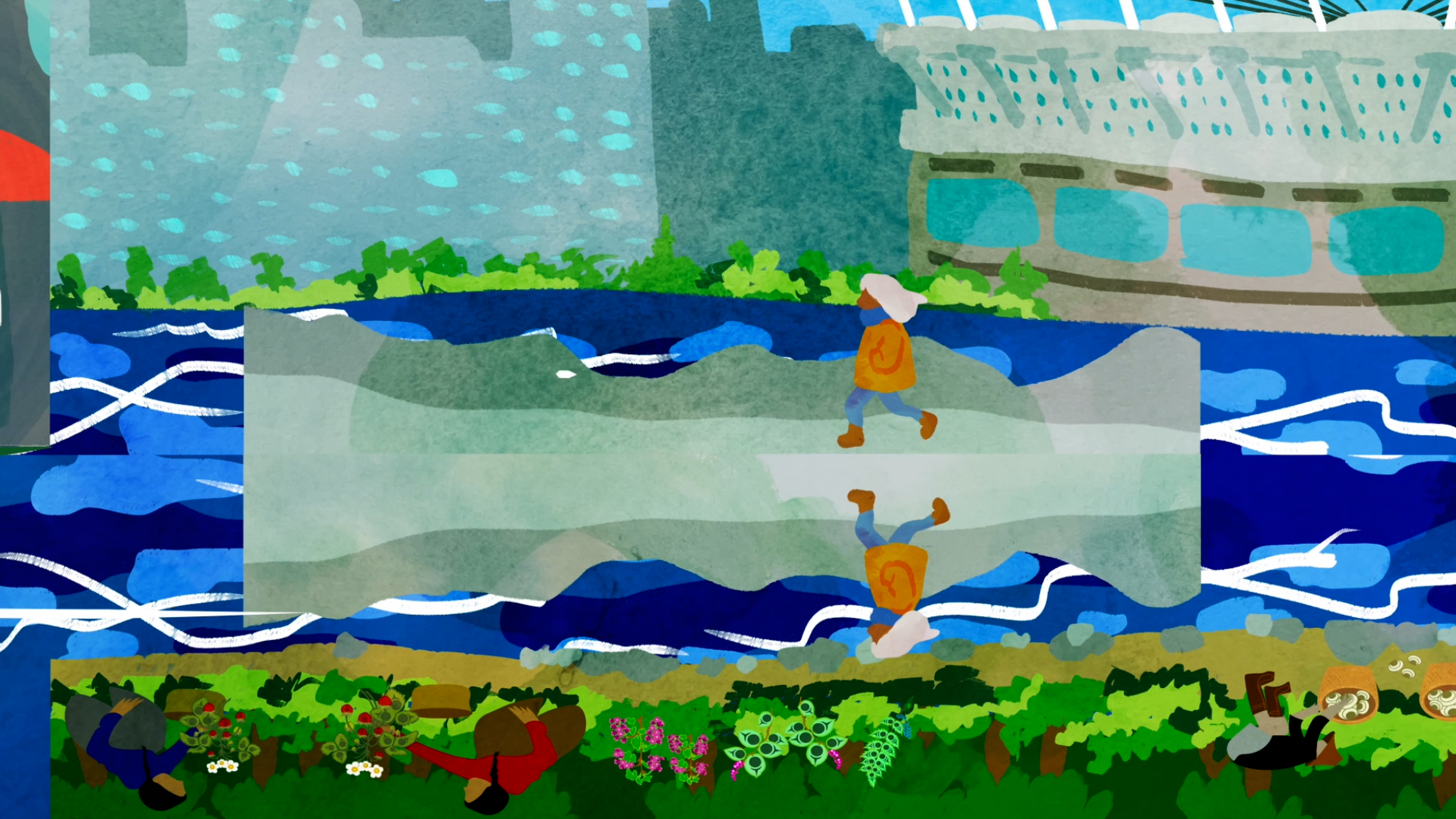
Stills from animated video, Belonging in Unceded Territory
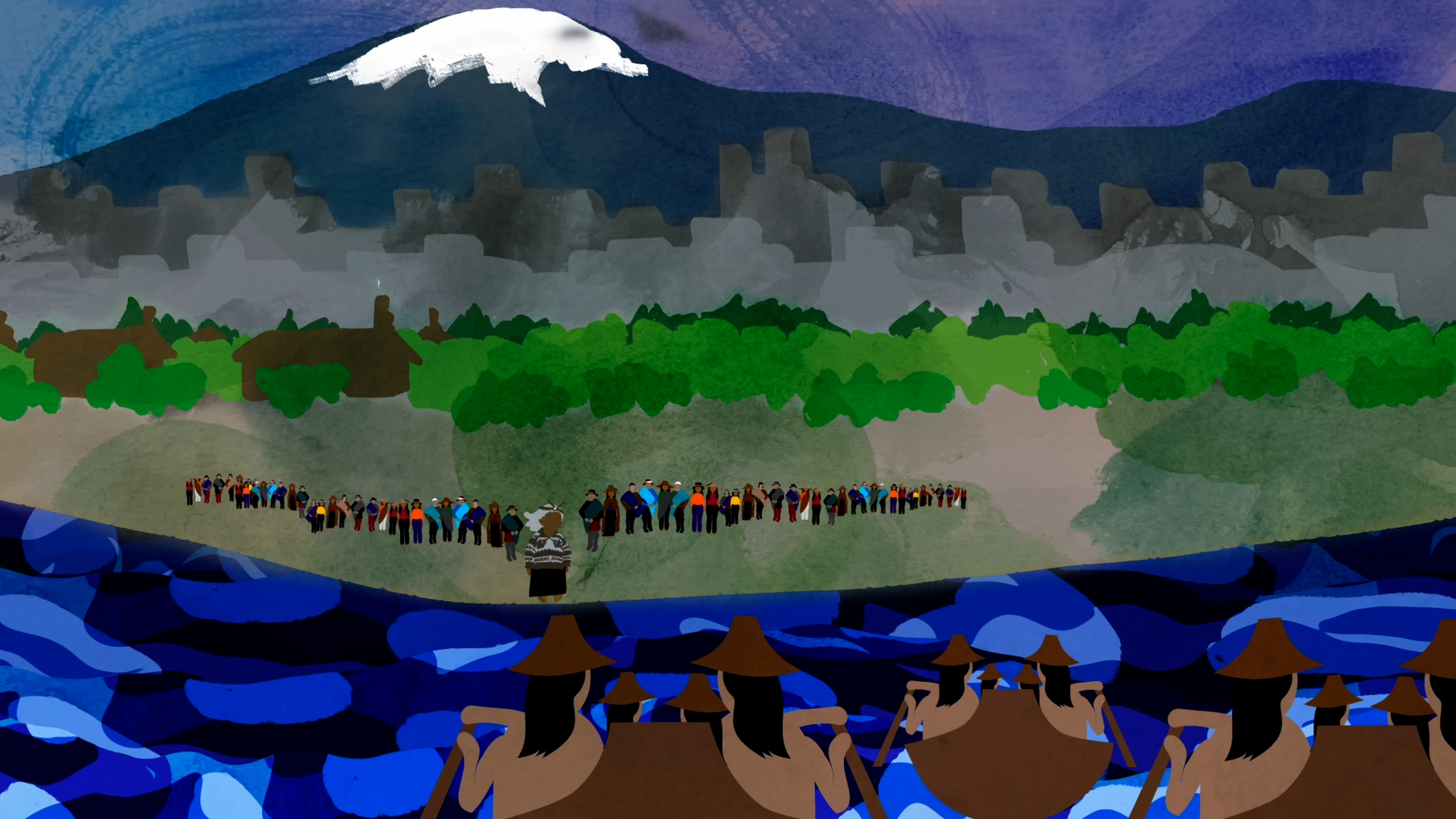
Stills from animated video, Belonging in Unceded Territory
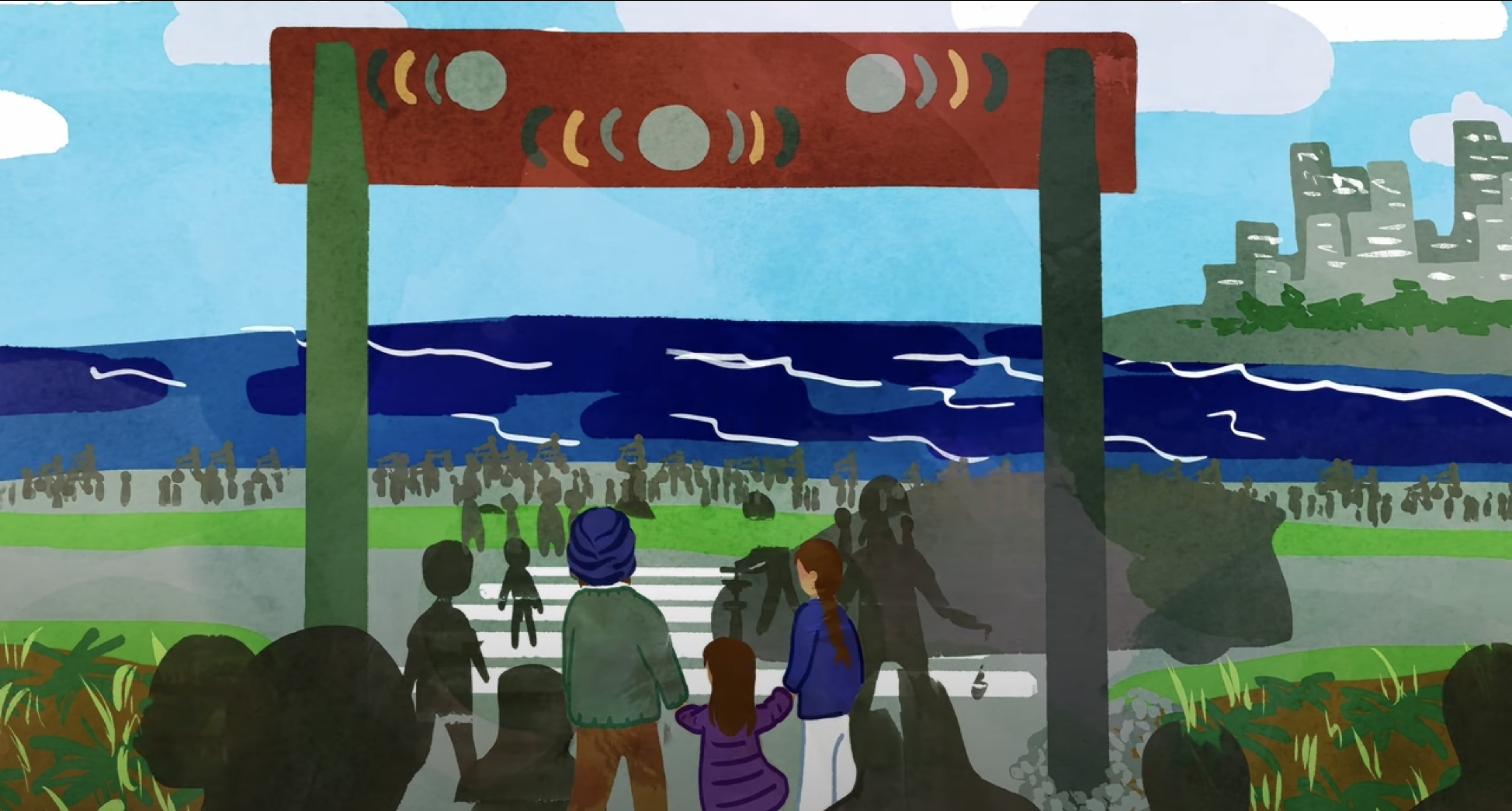
Stills from animated video, Belonging in Unceded Territory
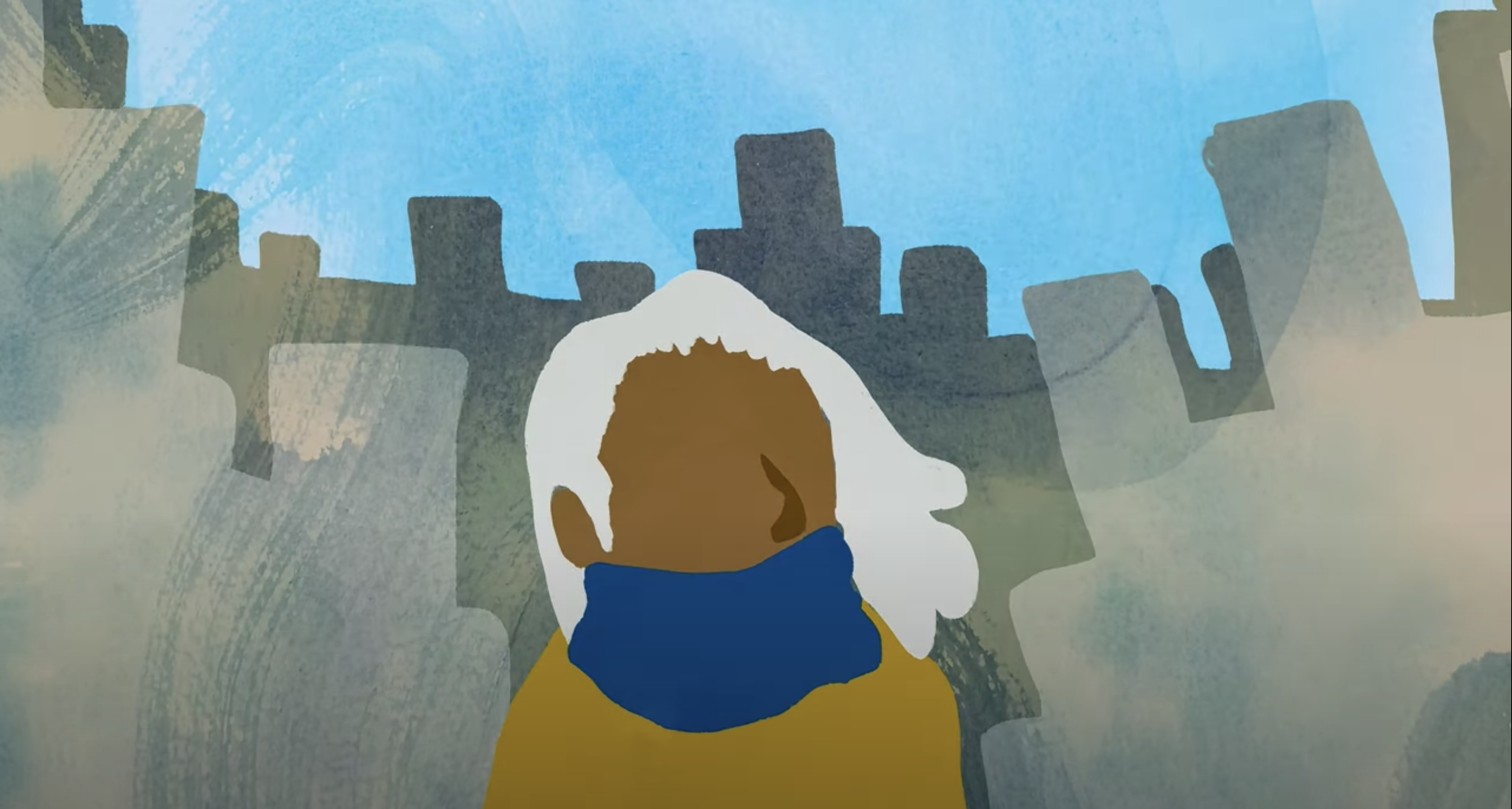
Stills from animated video, Belonging in Unceded Territory
Project Overview
Vancouver is situated on the traditional, ancestral and unceded territories of the Musqueam, Squamish, and Tsleil-Waututh peoples. Coast Salish peoples have belonged on these lands since times immemorial. Yet, narratives of belonging rarely grapple with the fact that belonging is negotiated on stolen land. The Belonging in Unceded Territory project brings settler colonialism into the center of debates on social belonging in Vancouver. It asks: what does it mean for today’s settlers – those among us who have lived here for generations, and those who have just arrived – to acknowledge our own position in relation to Indigenous presence in these lands? How can we develop place-based narratives of belonging that do not shy away from confronting the ugly truth of ongoing settler colonialism? How can we live as good guests on these lands? What actions can we take individually and organizationally to move forward in relationship? Engagement with these questions is critical if we are to be responsive to the Truth and Reconciliation Commission’s Calls for Action.
Project goals
Our award of funding coincided with the start of the first pandemic lockdown. While it took time to establish our partnership via Zoom, the lockdown also provided us with space to reflect on the project and our place in it. Since then, we continue to learn from each other and from the Indigenous knowledge keepers who support our work. As a result, our original objectives have evolved. Today, nearly three years into the project, we pursue the following goals:
- Build reciprocal and sustainable partnerships between the Centre for Migration Studies, settlement and community organizations, and Indigenous community leaders.
- Facilitate settler dialogue and learning about Coast Salish histories, colonization, and the ways in which we are implicated in Canada’s settler colonial project. Recognize the differential positioning of Canadian-born and newcomer settlers, and white and racialized settlers.
- Learn from the wisdom of knowledge keepers to explore decolonizing ways of living and belonging. Identify actions we can take to live as respectful guests on Coast Salish territories and support the host nations.
- Share our knowledge through various media to enable outreach to different audiences.
Research stages
- 2020: Partnership building | Text analysis | Media analysis
- 2021: Interviews and talking circles | Decolonizing Initiatives Map
- 2022: Decolonizing training | Podcast production | Animated film production | Dialogue group planning
- 2023: Dialogue groups and survey planning
- 2024: Survey
Partners
UBC Centre for Migration Studies
Antje Ellermann (PI)
Markus Hallensleben
Richard Johnston
Sean Lauer
Gabriele Dumpys Woolever
Matthew Wright
Yang-Yang Zhou
Research Assistants:
Nicholas Phin
Cindy Robin
Lara Şarlak
Claudia Serrano
Frog Hollow Neighbourhood House
Susan Liu Woronko
Jessie Seegerts
Gloria Tsui
Ancel Xiaoyu Zhu
Affiliation of Multicultural Societies and Service Agencies of BC (AMSSA)
Katie Crocker
Winnie Chironga
Sabrina Dumitra
Sara Sehic
Immigrant Services Society of BC (ISSofBC)
Kathy Sherrell
Shae Viswanathan
Jennifer York
We are grateful for the support of Mount Pleasant Neighbourhood House during the project’s formative stage.
Knowledge dissemination
Canada is lauded for its multiculturalism and being a welcoming host society to migrant newcomers. But discourses around settlement and integration tend to ignore the realities of Canada’s status as a settler colonial state. What would it mean to take seriously the fact that these are Indigenous lands to which Canada has no right to offer welcome? Can practices of immigration and settlement be reconciled with the possibility of decolonization? These are the questions that brought together partners in Coast Salish territories – or, Vancouver, BC – for a multi-year research collaboration called “Belonging in Unceded Territory.” With newcomer and Indigenous community members from Frog Hollow Neighborhood House, migration scholars from UBC, and staff from Immigrant Services Society of BC and the Affiliation of Multicultural Societies and Service Agencies of BC, space is being made for new narratives of belonging. What will they be?
Animated film (Coming soon: discussion guide and film subtitles in several languages)
This animated film features voices of Indigenous and settler community project participants and distills the themes and questions of the Belonging project. The substance of the film’s narrative comes from talking circles and interviews conducted in 2021. We are deeply grateful to the many participants who shared their reflections and experiences with CMS and Frog Hollow Neighbourhood House collaborators. The film was produced by Sebastian Hill-Esbrand and features artwork by Emily Chou and Charlene Johnny.
This film may be freely shared and viewed for educational and discussion purposes. If you decide to use the film in a group setting we ask that you send a brief message to Antje Ellermann so that we can get a sense of how this film is being used. Feel free to use our discussion guide (coming soon) to get the conversation started.
This digital map briefly introduces some of the many local projects that we connected with through this project that have initiatives dedicated to efforts of Truth and Reconciliation, decolonization and/or Indigenization on unceded Coast Salish territories. The initiatives displayed on the map are far from a comprehensive list and our project welcomes requests from other groups who are similarly engaged in decolonizing initiatives in the region. In case your organization is interested in being featured on this map, please contact admin.migration@ubc.ca.
By clicking on an organization’s logo on the map, you will find more information about its initiative and ways to connect with or be a part of it!
Publications
Hallensleben, Markus. (Forthcoming) “Unsettling Politics of Belonging through Narratives of Radical Diversity and Indigenous Storywork.” Politics of Postmigration. Special issue of Europe Now (2023). https://www.europenowjournal.org/
Hallensleben, Markus. (Forthcoming) „Über die Lust des Vergessens und Zerstörens: Kann es eine gewaltlose, dekolonialisierte und dezentrierte Literaturwissenschaft geben? Ein persönliches Manifest für eine verantwortungsbewusste, relationale Wissensvermittlung. [About the Pleasure of Forgetting and Destroying: Can There Be Literary Studies without Violence, Colonialism and Eurocentrism? A Personal Manifesto for Sharing Knowledge in a Responsible and Relational Way.”] The Pleasure of Studying Literature. Eds. Mona Koerte et al.
Hallensleben, Markus. “(Re)Imagining a ‘Good Life’ as a Settler Scholar: How Can We Decolonize and Indigenize European Studies through Indigenous Storywork?” Polylogues at the Intersection(s) Series, 2022. (Open access)
Presentations
We continue to share the insights gained from this work through presentations with academic, community, and policy audiences, both at home and further afield:
2023
- Centre for Advanced Migration Studies, University of Copenhagen, May 2023
- Centre for the Study of Political Behaviour, Western University, London, Ontario, March 2023
- CMS Narratives group, Centre for Migration Studies, January 2023
- Host Nations Luncheon, Vancouver, January 2023
- Frog Hollow Neighbourhood House, all staff meeting, January 2023
2022
- IRCC Canada BC-Yukon Summit, hosted by AMSSA, plenary session, November 2022
- Annual meeting of the American Political Science Association, Montreal, September 2022
Acknowledgements
The Belonging in Unceded Territory project is taking place on the ancestral and stolen territories of the Coast Salish peoples. This land sustains us in our daily work and lives. Coast Salish peoples have served as the stewards and knowledge keepers of these lands since time immemorial. We raise our hands to you!
We gratefully acknowledge the Indigenous elders, knowledge keepers, and community leaders who have and continue to guide us on our learning journey through their teaching and feedback:
Chepximiya Siyam’ Chief Janice George
Skwetsimeltxw Willard “Buddy” Joseph
Elder Kat Zu’comulwat Norris
Norm Leech
Niis Miou/Travis Angus
Sussan Yáñez
Jolene Andrew
Ta7talíya Michelle Nahanee
We acknowledge the financial support of the Social Sciences and Humanities Research Council through its Partnership Development Grant program (#890-2019-0100).
